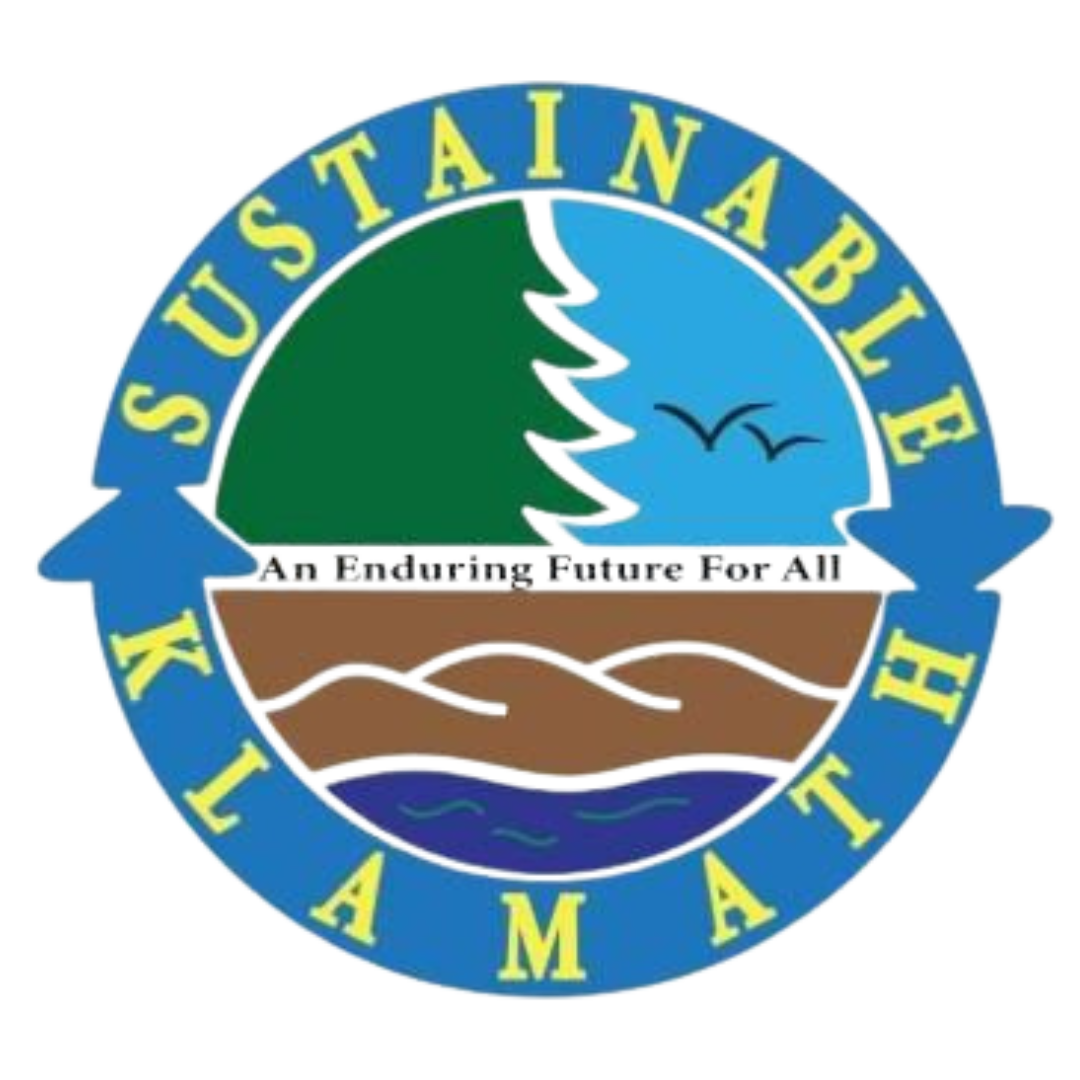by Alissa Oliverson (SWAC Chair) November 2020
Trash Talk series from Sustainable Klamath, Solid Waste Action Committee (SWAC)
Americans throw away 25% more trash from Thanksgiving to New Year than any other time of year. But spending time with our loved ones and enjoying good food together doesn’t have to threaten the health of the environment that sustains us. This year, consider learning more about sustainability by joining Sustainable Klamath, and try out these tips for a more sustainable Thanksgiving.
- Reduce food waste.
- Remember: what you scrape off your plate into the trash is a waste of the resources used to produce the food, and the hard-earned money you spent to buy it.
- Shop wisely – buy only what you need. Make a list before you go.
- Cook wisely – make enough but not too much. You can check out SaveTheFood.com and try out their free “Guest-Imator,” which will help you plan your meal for your exact number of guests and desired number of leftover meals.
- Use smaller plates. Guests can still serve up seconds if they please, but smaller plates allow everyone to gauge their fullness more effectively. Not only will this save a lot of wasted food from the trash, but it will also help people avoid over-eating and packing on those pesky holiday pounds. Health is wealth!
- Compost scraps like eggshells and potato skins, or food that has gone bad. Remember to keep meat and dairy products out of your compost.
- Cook a smaller turkey or perform a full pardon and go totally meat-free.
- Around 200 million pounds of turkey meat is thrown away during Thanksgiving every year, contributing to climate change by increasing methane gas emissions from landfills.
- Eating less meat is one of the most effective ways to combat climate change and preserve natural habitats.
- The veggies that make up all those amazing side dishes require less water, land, and fuel to produce than turkey.
- Shop local.
- Locally produced foods require fewer greenhouse gasses to get to you and they are often grown on smaller farms that use more sustainable methods.
- Local foods are fresher because they don’t have to travel as far, and this often means they taste better.
- Shopping local keeps money and jobs in our community’s economy.
- If you’re a guest, bring your own reusable container for leftovers.
- The times they are a changing, folks. It is not socially or environmentally conscious to expect your host to send you home with leftovers in a single-use take-out container, or on a single-use paper plate covered in aluminum foil. Just like you bring your own bag to the grocery store, bring your own container to Thanksgiving dinner.
- Even with concerns of cleanliness/contamination amid the COVID-19 pandemic, expert epidemiologists, virologists, biologists, chemists, and doctors across the globe agree that with basic hygiene and cleaning methods, reusable containers are just as safe as their single-use counterparts.
- Refuse single-use tableware.
- Each week, from Thanksgiving to New Year, Americans throw out 1million extra tons of trash. Paper/Styrofoam plates, plastic cups and silverware, and paper napkins seem tempting when you think about Thanksgiving clean up, but they are not recyclable, and they are devastating to the environment.
- “Eco-friendly” plates and tableware that claim to be fully compostable or biodegradable are not necessarily a good idea either. Many of these products are made from plastic that has been synthesized from corn, and if they are not composted in a proper industrial facility, their claims are meaningless. The Klamath Basin does not have an industrial composting facility, so these products will still end up in the landfill.
- Cloth napkins and reusable tableware are your best bet. Even after using water and energy to clean these items, they are still the more environmentally friendly options. Additionally, spending time with your loved ones on a clean-up task is a great way to build relationships. And after all, what else are the holidays for?
Sustainable Klamath is seeking volunteers and donors to help us continue to provide education and resources to the Klamath Basin. Please consider us during this charitable season and visit our website at SustainableKlamath.org to volunteer or donate.

Leave a Reply